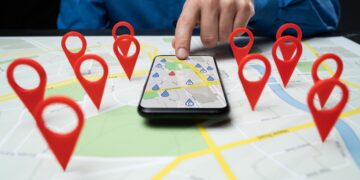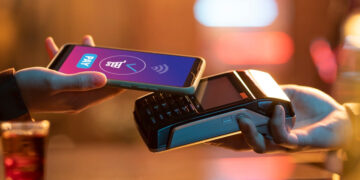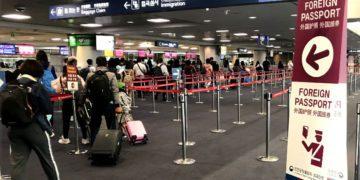Last Updated on 7 months by admin
Planning a trip to South Korea? Read on ahead to get an answer to the most important question, ‘Where to go for foreign currency exchange in South Korea for the best rates?’
South Korea is a must-visit location for any traveler because of its illustrious history, breathtaking beauty, energetic cities, year-round festivals, and significant influence on international pop culture. South Korea is a fascinating nation in East Asia that will enthrall you at every step, from Seoul’s vibrant capital to Jeju Island’s breathtaking beaches. Your breath will be taken away by everything South Korea has to offer, whether you’re looking to learn more about the country’s distinctive culture, sample some delectable local cuisine, or simply take in the breathtaking natural scenery.
All you need to know about the Korean currency
To start with, the currency of South Korea is the ‘won’ or ₩ or KRW.
In terms of monetary value,
- four types of bills – ₩50,000, ₩10,000, ₩5,000, ₩1,000.
- five types of coins – ₩500, ₩100, ₩50, ₩10, and ₩1.
Other than Korean won, there are other ways of payment available in Korea.
- Credit cards – They are universally accepted all across Korea, be it stores, malls, restaurants. hotels, or any other tourist destination. Irrespective of the amount, you can use your credit card to make payment. Businesses accept all types of cards – Visa, Mastercard, and American Express.
- Travelers cheques – You can use traveler’s cheques to exchange cash at currency exchange offices or banks. They are very rare in Korea so you can use them instead of cash, but it might be challenging to find business which accepts them.
- Digital payment options – Mobile payment systems like KakaoPay and Naver Pay are also common in South Korea. You can make payments through these platforms without having to exchange physical currency. These services offer convenience and potentially favorable rates. Additionally, the integration of these payment systems with various services, including e-commerce and tourism-related platforms, enhances their utility for tourists.
The import or export of domestic or foreign cash is unrestricted. However, sums greater than USD 10,000 or equivalent must be disclosed.
Trying to decide where you should exchange your money can be rather difficult. Before traveling to Korea, some people attempt to exchange their currency in their home country, while others may decide it is more appropriate to do so once they arrive.
The exchange rate and the most advantageous method for converting your money to Korean Won are crucial factors to consider before traveling to Korea. Will changing your currency beforehand be more convenient? Maybe just using USD would be simpler? Where to exchange money in Seoul? You have undoubtedly thought about each of these concerns while you have planned your vacation to Korea.
We are going to go over it all step-by-step because foreign currency exchange in South Korea can be overwhelming.
Where can you exchange currency in South Korea?
One of the few places in the world where you may obtain favorable exchange rates is from banks in South Korea. While in Seoul, you can rely on the bank’s service.
The staff at the counter can assist you in both English and Japanese, which is a benefit of exchanging money in banks. At banks like KEB Hana Bank, Shinhan Bank, and Woori Bank, which are especially created to cater to tourists, you will undoubtedly enjoy this specialized service.
The sole drawback to bank services is their irregular opening hours (standard bank hours are 09:00 – 16:00 from Monday to Friday).
In addition to banks, there are reputable one-on-one money changers where you may load up on Korean Wons for your culinary and fashion trips. They can be found in Itaewon, Dongdaemun, and Myeongdong. In other areas, it will be difficult to find private service providers who offer competitive rates.
Visitors are urged to stay away from the eccentric currency exchange kiosks with enormous umbrellas on the pavements, even though the majority of money changers in Seoul are permitted.
Traveler’s cheques can be exchanged at select service booths and in banks. Just keep in mind to just sign the cheque’s bottom portion in the teller’s presence. Otherwise, they won’t accept your check.
Additionally, remember to bring a legitimate ID because certain banks require one while conducting transactions. Now, let’s get into where to exchange money in Seoul.
Tips for currency exchange in South Korea
- Banks are the best option in South Korea for getting a good currency exchange rate.
- Reputable money exchangers are available in tourist-friendly places but they don’t offer competitive rates, compared to the banks.
- Avoid currency exchange kiosks on side walks, despite them having permission from the government.
- Carry your passport when going for money exchange.
- If you are exchanging amount worth more than USD 10,000, make sure you fill in the declaration form.
Steps to exchange currency in South Korea
- Prepare documentation
- Carry your passport when exchanging currency, as it’s required for all currency exchange transactions in South Korea.
- If exchanging amounts exceeding $10,000, be prepared to declare the funds to customs authorities.
- Choose the right exchange location
- Banks: Most major banks offer currency exchange services during weekdays, typically from 9:00 AM to 4:00 PM. It’s advisable to check specific operating hours with the bank you plan to visit.
- Government-Certified Exchange Booths: Government-certified exchange booths are usually found in places where lots of tourists hang out, and they often work outside of regular bank hours. Keep an eye out for signs that say “Certified” and have currency symbols on them.
- ATMs: Withdrawing cash from international ATMs can be convenient. However, it’s essential to check with your home bank regarding foreign withdrawal fees and inform them of your travel plans to avoid any issues.
- Be cautious of exchange fee
- Avoid ‘Zero Fee’ Services: Be wary of services advertising zero commission, as they may offer poor exchange rates, resulting in hidden costs.
- Check Exchange Rates: Familiarize yourself with current exchange rates to identify unfavorable deals and ensure you’re receiving a fair rate.
- Retain your exchange receipt – Keep your exchange receipt! You’ll need it, along with your passport, when you’re ready to exchange your Korean won back to your home currency before you leave South Korea.
- Be aware of currency exchange regulations
- Re-Exchange Limits: You can re-exchange Korean won to foreign currencies up to the amount you initially exchanged while staying in Korea. Ensure you have the foreign exchange transaction slip and your passport for this process.
- Reporting Large Transactions: Be prepared for additional documentation and reporting requirements if exchanging large sums, as per South Korean financial regulations.
Where to exchange money in Seoul – Top banks for currency exchange in Seoul
You will get money exchange centers in all international airports; however, it is advised to use city centers as airport exchange rates are quite higher around the world and in Korea.
- Myeongdong
- Shinhan Bank
- Woori Bank
- Myeongdong Ilpumhyang Money Exchange
- Myeongdong “Embassy Exchange” (in front of the Chinese Embassy)
- Money Box Myeongdong – Money Box has 8 locations in Korea and focuses on money exchange. One of the finest rates in Myeongdong may be found at Money Box Myeongdong, which can exchange up to 18 different types of money. Communication shouldn’t be a problem because their staff is also fluent in English, Japanese, Chinese, and Korean.
- Jeil Money Express
- Dongdaemun
- Currency Exchange counters in the Dongdaemun market area
- KEB Hana Bank
- Shinhan Bank
- Kookmin Bank
- Woori Bank
- Itaewon
- KEB Hana Bank
- Industrial Bank of Korea
- Shinhan Bank
- Royal Exchange counter (near Itaewon station)
A very practical automatic currency exchange machine called WOW exchange is available in Seoul in addition to the money exchanges in Myeongdong. If you can’t get to a currency exchange in Myeongdong, look for these automatic currency conversion machines elsewhere in Seoul.
You can exchange US Dollars, Taiwan Dollars, Hong Kong Dollars, and Japanese Yen here. They are ideal for people with limited time or who don’t want to go all the way to Myeongdong.
The opening hours or banks’ exchange offices may vary. Check the operating timings before you visit them.
Other Options of Foreign Currency Exchange
Credit Cards in Seoul
Your credit card offers the absolute best currency rate for purchases in South Korea. Before you decide to use your credit card, don’t hesitate to get in touch with your bank in advance to inquire about any additional costs. Major credit cards, like Visa and Mastercard, are extensively accepted throughout all businesses in the Seoul area.
ATM Card Withdrawals
Many ATMs accept international credit cards like Visa/Plus for cash withdrawals in local South Korean Won. Before deciding to use your ATM card abroad, please inquire with your bank about any additional charges.
Traveler’s Cheques
Most hotels, banks, and even currency exchange counters accept traveler’s cheques, but there may be some additional fee charges.
International Airports
Gimpo International Airport, Gimhae International Airport, and Incheon International Airport have multiple money exchange services across the terminals offered by different Korean banks. For example at Gimpo, there’s a currency exchange available at 1F, 2F, and 3F. At Gimhae, there’s BNK Busan Bank money exchange counter at 1F. You can find out more about the details of each airport kiosks from the website.
Related Posts
36,603 total views, 17 views today

















